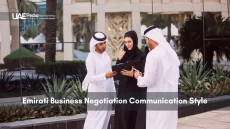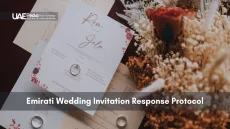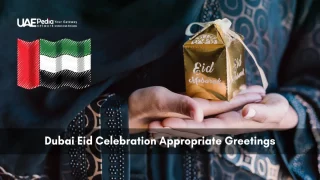Did you know that over 16 million visitors explored Dubai last year, each armed with a camera? While snapping that perfect shot feels thrilling, blending creativity with cultural awareness here is nonnegotiable. This city thrives on contrasts—ultramodern skyscrapers meet centuries-old traditions—and navigating its visual storytelling rules requires both heart and know-how.
Whether you’re framing golden-hour portraits or candid street scenes, local customs and privacy laws shape every click. The UAE values discretion, and what might seem like a harmless photo elsewhere could unintentionally cross lines here. But don’t worry—we’ve got your back.
This guide walks you through how to document Dubai’s magic without missteps. You’ll learn when to ask before shooting, which locations demand permits, and why certain sites stay camera-free. We’ll also unpack how to honor traditions while celebrating the city’s vibrant energy.
- Cultural balance: Frame iconic landmarks and daily life without overstepping boundaries.
- Legal essentials: Permits, restricted zones, and privacy rights decoded.
- Trust-building: Simple gestures to connect with locals before raising your lens.
Overview of Photography Laws and Cultural Sensitivities in Dubai
In a city where tradition meets innovation, every snapshot comes with unspoken guidelines. Whether you’re framing glittering towers or bustling souks, blending awareness of local norms with legal know-how keeps your lens—and conscience—crystal clear.
Understanding Local Customs and Traditions
Emirati culture prizes privacy and modesty. Always ask before pointing your camera toward individuals, especially women or families. As one resident shared:
“A smile and a simple ‘hal yumkin?’ (may I?) go further than you’d think.”
Avoid capturing images that could misinterpret traditions, like candid shots during prayer times.
Legal Framework and Cultural Guidelines
UAE law treats unauthorized snaps seriously. Article 378 of the Penal Code prohibits photographing others without consent, with fines up to AED 500,000 (~$136,000). Key restrictions include:
- No shots of government buildings, military sites, or airports
- Drones require permits from the GCAA (General Civil Aviation Authority)
- Social media posts must avoid depicting locals without approval
Even influencers aren’t exempt—a tourist’s Instagram story of a restricted zone once led to device confiscation. But it’s not about stifling creativity. As a security officer explained: “We’re protecting both our heritage and your experience.”
Key Considerations for Respectful Photography Practices
Imagine framing a vibrant market scene—spices piled like rainbows, laughter echoing—when a vendor catches your eye. This moment? It’s where artistry meets ethics. Balancing creative vision with cultural awareness isn’t just polite; it’s how you craft images that feel right, not just look good.
Privacy and Consent Best Practices
Consent isn’t a checkbox—it’s a conversation. A nod or smile doesn’t always mean “yes.” Instead, try: “Mind if I capture this?” in English or a warm “hal yumkin?” (may I?) in Arabic. One traveler shared:
“I gestured toward my camera, and when the shopkeeper grinned and waved his hands—that’s when I clicked.”
Shooting without consent? Beyond legal risks, it fractures trust. Public spaces aren’t free-for-alls—especially near mosques or heritage sites. If someone turns away, lower your lens. Quick tip: Offer to email the photo later. It’s a bridge-builder.
Balancing Creativity with Cultural Respect
Great shots thrive on connection, not stealth. For candid moments, focus on scenes, not faces—think hands kneading dough or shadows stretching across alleys. Struggling to blend in? Sit awhile. Buy a coffee. Let subjects see you before you shoot.
Remember: Privacy here is sacred, not secretive. As one Emirati artist noted: “Our culture’s beauty lies in its layers—peel them gently.” Need guidance? Check our UAE cultural etiquette guide for deeper insights.
- When in doubt, pause: Ask yourself: “Would I want this posted of me?”
- Edit with care: Blurring faces in crowd shots shows respect without sacrificing composition.
dubai respectful photography people permission: Obtaining Consent and Permission
Ever wondered why some travelers snap stunning shots while others face frowns? The secret’s in the ask. Navigating image-capturing here isn’t just about talent—it’s about trust. Let’s break down how to get that green light smoothly.
Steps to Secure Permission from Subjects
Start with a smile and a simple introduction. Explain why you’re drawn to the scene—maybe the vibrant textiles or artisan’s craft. For casual shots, a verbal “yes” often works. But commercial projects? You’ll need written approval. One tour guide shared:
“Visitors who take five minutes to chat first? They leave with better photos—and friends.”
| Situation | Consent Type | Documentation |
|---|---|---|
| Street market vendor | Verbal | Not required |
| Professional shoot near Burj Khalifa | Formal permit | Municipal approval + insurance |
| Group photo at cultural festival | Written release forms | Signed copies for each participant |
When and How to Ask for Consent
Timing matters. Avoid interrupting prayers or meals. For kids, always involve guardians. If someone hesitates, thank them and move on. Proceeding without approval risks fines up to AED 300,000—yes, even for selfies.
Need to shoot at a heritage site? Apply through Dubai’s Department of Tourism portal 48 hours early. Keep permits handy—inspections happen. As one photographer learned: “My desert shoot got paused until I showed my papers. Lesson? Always carry backups.”
- Quick tip: Use translation apps for clear communication.
- Pro move: Store digital copies of approvals in cloud folders.
Respecting Religious and Sacred Sites During Photo Shoots
Picture this: sunlight filters through intricate latticework, casting geometric shadows across marble floors. Sacred spaces here aren’t just backdrops—they’re living narratives of faith. Capturing their essence demands more than technical skill; it requires heart-first awareness.
Etiquette at Mosques and Places of Worship
Many government-managed religious buildings welcome visitors, but always check signage first. At the Sheikh Zayed Grand Mosque, designated photography zones exist—stray beyond them, and security will politely redirect you. As a cultural guide once advised:
“Dress like you’re meeting someone’s grandmother. Shoulders covered, knees concealed. Silence your phone—let the space speak.”
Flash photography? Skip it. The sudden burst can disrupt prayers or damage ancient artifacts. Tripods often require permits too—plan ahead if you’re shooting professionally.
Some areas, like prayer halls, may restrict all cameras. If unsure, ask staff. Even beaches near sacred sites follow similar rules—watch for “no photo” signs along waterfronts.
- Connect before capturing: Smile at caretakers. A quick “As-salamu alaykum” (peace be upon you) shows respect.
- Time it right: Avoid Friday midday prayers when spaces fill with worshippers.
- Edit thoughtfully: Blur faces in crowd shots near sensitive locations.
Remember: These places hold deep meaning. Your lens isn’t just documenting—it’s guest. Treat each click like an invitation you’re honored to receive.
Drone Photography and Aerial Shooting Regulations
Soaring above the skyline with a drone feels like holding a magic carpet remote—but even Aladdin needed rules. The General Civil Aviation Authority (GCAA) oversees aerial activities here, blending safety with creativity. Their guidelines ensure your bird’s-eye views don’t accidentally breach airspace or privacy.
Registration and Permit Requirements for Drones
All drones heavier than 250 grams must register with the civil aviation authority. Commercial operators need a GCAA permit plus insurance—apply online 30 days before flying. A local pilot shared:
“The process took two weeks, but having that approval sticker? Worth every dirham.”
Recreational flyers get simpler e-registration, though night flights still require special clearance.
Using Designated Aerial Zones
Dubai designates specific areas for drone use. Popular spots include desert expanses near Al Qudra Lakes and certain beachfront parks. Avoid zones within 5 kilometers of airports—fines here start at AED 20,000. The aviation authority updates restricted areas monthly on their app.
| Drone Type | Allowed Zones | Prohibited Areas |
|---|---|---|
| Recreational | Al Marmoom Desert | Near military bases |
| Commercial | Designated beaches | Government complexes |
Security teams use radar to detect unauthorized flights. Last year, a tourist’s drone near Burj Khalifa triggered a 15-minute airspace lockdown. Lesson? Stick to approved zones and keep altitude below 400 feet.
- Safety first: Attach an ND filter to avoid blinding sensors.
- Privacy matters: Blur residential rooftops in post-editing.
Following these guidelines isn’t just about compliance—it’s how you capture those sweeping dunes and futuristic cityscapes without grounding your gear.
Commercial Photography Permits and Legal Compliance
Commercial work here isn’t just about lenses—it’s about licenses. Whether you’re shooting product campaigns or architectural marvels, skipping permits risks more than reshoots. Let’s map the approval maze so your project stays creative—and compliant.
Obtaining Permits for Professional Projects
Start with the National Media Council’s online portal. Submit your project scope, location details, and equipment list. Most applications need 3-5 business days. A local filmmaker shared:
“Upload insurance docs upfront. It shaves days off approval time.”
Required paperwork often includes:
- Company trade license copies
- Location owner consent letters
- Equipment safety certifications
Understanding Fines and Consequences
Snapping without permits? Fines start at AED 10,000 (~$2,725). Repeat offenders face equipment confiscation or bans. Government buildings and cultural sites carry heftier penalties—up to AED 100,000 for unauthorized shoots.
| Violation Type | Typical Fine | Additional Actions |
|---|---|---|
| No permit | AED 10,000 | Project shutdown |
| Restricted areas | AED 50,000+ | Legal charges |
Authorities conduct random checks, especially near landmarks. Keep digital permit copies accessible—email backups save headaches. One agency’s golden rule? “Assume every structure has rules until proven otherwise.”
Pro tip: Apply early for drone or nighttime shoots. These require extra layers from aviation and municipal authorities. Navigating regulations might feel tedious, but it’s how you protect both artistry and access.
Tips for Navigating Public and Restricted Areas in Dubai
Decoding the city’s mix of open spaces and off-limit zones feels like a cultural treasure hunt—where “X” marks both creative gold and legal boundaries. Here’s how to spot the difference and keep your shots ethical.
Street Photography Essentials
Public spaces like malls and beaches welcome casual snaps, but always check for signage first. Security teams often patrol high-traffic areas, so keep permits handy if shooting professionally. A local influencer shared:
“I treat every ‘no camera’ sign as a red light—stopping avoids headaches and builds trust.”
| Location Type | Allowed Actions | Prohibited Actions |
|---|---|---|
| Shopping Malls | Casual mobile shots | Tripods without permits |
| Beachfronts | Landscape photography | Filming strangers up close |
| Heritage Sites | Architectural details | Flash photography indoors |
Identify restricted sites by looking for circular red-and-white symbols featuring a crossed-out camera icon. When approached by security, stay calm—explain your purpose and show documentation if requested.
For street scenes, focus on patterns and landscapes rather than faces. If capturing candid moments, maintain distance and avoid lingering near private residences. Quick tip: Review photography guidelines before heading out—they clarify gray areas about tripods and commercial use.
- Safety first: Dress modestly near cultural landmarks
- Social media smarts: Blur license plates before posting
- Pro move: Learn basic Arabic phrases like “mumkin sura?” (may I take a photo?)
Sharing and Social Media: Balancing Exposure with Compliance
Your Instagram feed lights up with desert sunsets and bustling souks—but hit “post” without a strategy here, and those likes could cost thousands. Navigating online sharing here isn’t just about aesthetics; it’s a dance between showcasing artistry and honoring invisible boundaries.
Responsible Sharing of Photographs Online
Before uploading, ask: “Does this image respect the story behind it?” Blur identifiable faces in crowd shots. Crop out license plates or home addresses. A Dubai-based influencer shared:
“I treat every upload like a digital souvenir—something the subject would proudly display themselves.”
Tagging locations? Avoid pinpointing private residences. Use broad terms like “Old Town District” instead of exact coordinates.
Copyright and Privacy Considerations
UAE cybercrime laws treat unauthorized posts seriously. Even artistic shots of strangers require written consent if shared commercially. Fines for violations can soar to AED 500,000—yes, that includes that candid beach sunset with silhouetted figures.
- Protect your work: Watermark images or use low-resolution versions online
- Double-check releases: Store signed model forms in cloud folders
- Edit mindfully: Avoid filters that alter cultural details like traditional attire patterns
Remember: What’s legal elsewhere might breach privacy rights here. When a local café owner appears in your reel, their smile isn’t automatic consent—it’s an invitation to ask.
Wrapping Up: Embracing Ethical Photography in Dubai
Capturing this country’s spirit through your lens is like learning a new dance—every step balances creative freedom with cultural rhythm. We’ve mapped the essentials: from permit laws to respecting sacred areas. Remember, those gleaming skylines and bustling markets thrive when visitors honor both rules and local values.
Real stakes exist here. Last year, a filmmaker faced a AED 50,000 fine for shooting near security-sensitive zones without clearance. Another team had equipment confiscated after skipping model releases—a clear breach of privacy laws. These consequences of oversight stretch beyond financial penalties—they impact trust and access.
Your camera holds power. Use it wisely by checking security protocols, securing necessary permissions, and editing with cultural sensitivity in mind. Whether documenting personal projects or commercial assignments, ethical practices don’t limit artistry—they deepen connections and safeguard this nation’s heritage.
Arm yourself with the latest information from official portals. For photographers, blending creativity with responsibility isn’t just smart—it’s how you contribute to the UAE’s unfolding story. Ready to create? Pack curiosity alongside permits. Every respectful click becomes part of a brighter narrative, framed by awareness, not just aperture settings.
Always ask for consent first. UAE privacy laws protect individuals from unauthorized photography, especially if images are shared online. For group shots in crowded areas like souks or beaches, avoid focusing on faces unless you’ve received clear permission.
Yes. The UAE Civil Aviation Authority requires drone registration and permits for aerial shoots—even for personal use. Restricted zones near airports, military sites, or government buildings are strictly off-limits. Check their official app for real-time maps of approved flying areas.
Absolutely. Under the UAE’s Cybercrime Law, sharing images that violate someone’s privacy can lead to fines up to AED 500,000. Always get written consent for commercial projects and blur faces/identifiable details in crowd shots before uploading to social media.
Some mosques like Sheikh Zayed Grand Mosque allow non-flash photography, but avoid capturing worshippers during prayer times. Always check signage or ask staff about rules. Heritage sites like Al Fahidi Fort may require special permits for professional gear like tripods.
Delete the images immediately if approached by security. Unauthorized photography near sensitive locations like Dubai Courts or Emirates Towers could result in device confiscation or legal action. Stick to well-marked tourist areas and follow guards’ instructions.
Contact Dubai’s Media Office or the specific emirate’s Department of Tourism. Public beaches like JBR require permits for staged shoots with equipment. For quick smartphone snaps, avoid busy hours and respect families’ privacy by keeping your lens pointed toward the sea.














